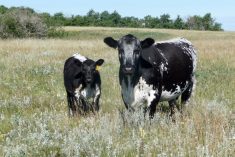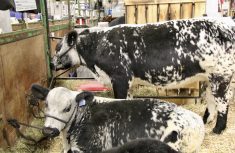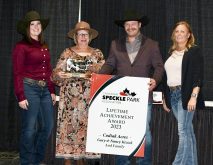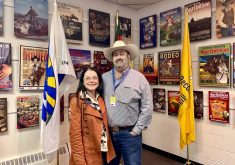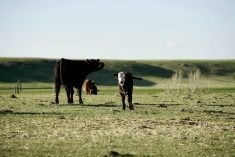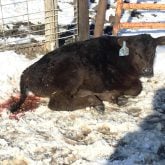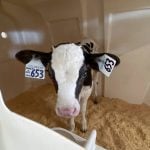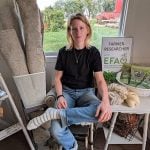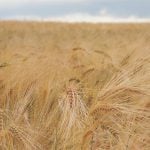When Jenn and Tim Saunders decided to get into ranching, they agreed on one thing immediately — they didn’t want to be like everyone else.
Having grown up on a commercial operation with Angus-cross cattle, Jenn Saunders knew that wasn’t the type of cattle she wanted to raise. All over the Prairies, you can see other popular cattle breeds, such as Charolais, Herefords and Simmentals. But the Saunders knew they wanted something different.
After doing some research, they decided on a breed of cattle rarely seen in Canada: the British White.

“We’ve never been ones to follow the status quo,” says Jenn Saunders.
Read Also
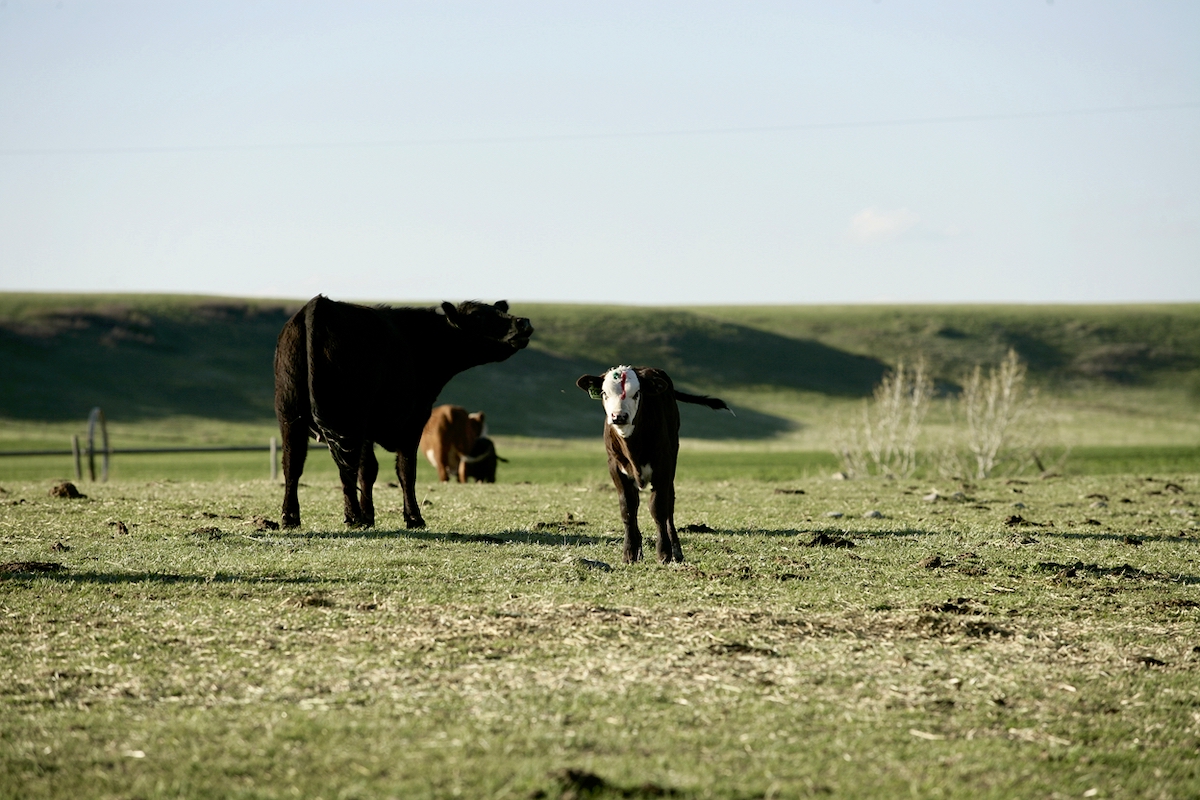
Body condition, nutrition and vaccination for brood cows
One of the remarkable events of the past century related to ranching has been the genetic evolution of brood cows….
The British White is an old breed, with herds in various parts of Britain dating back centuries. The cows are moderately sized, and both cows and bulls are known to be docile.
The Speckle Park, a fairly new breed developed in the mid-1900s in Saskatchewan, was influenced by several breeds. The Speckle Park’s black ears and noses are traits likely pulled from the British White.
Now, the Saunders run Chillo Creek Ranch near Prince George, B.C., where they have a herd of around 100 British Whites as well as a few Angus crosses. The family focuses on regenerative practices such as rotational grazing. They also raise various breeds of pigs, chickens and turkeys, and direct-market their meat.
The Saunders were attracted to the British White because of their temperaments. Raising their children on the farm, they wanted a cattle breed that they would be comfortable having their kids around.
“What shocked us about them is that they’re so gentle,” Saunders says.
“I’d say 90 per cent of them, they have calves out there and you can walk right up to the calf and they just stand there. They watch you but they’re not too worried.”
Saunders describes their British White cattle as friendly, gentle and calm. This means the cattle are easy to move and work with during calving season.
After deciding they wanted to raise British White on their ranch, the Saunders had to find a seller. At the time there were very few, if any, ranches in Western Canada that raised British White cattle. They ended up getting the first eight cows of their herd from a ranch in Idaho. They also purchased two bulls — one unregistered from Manitoba and a registered one from New Brunswick.
They also ended up getting some semen straws from the U.K., the home of the British White.

“We thought well, what’s a better place to get original semen from,” Saunders says.
However, when they had an issue using the straws, a producer from Texas bought the straws from them. They then purchased a bull calf from him that was conceived with seman from the straws.
Now going forward, Saunders says they’d like to be pickier about their herd’s genetics.
“We’ve done some really good work in collecting bulls, so that’s good. But I think the next thing we need to do is to get another line of cows,” she says.
Since Chillo Creek Ranch started raising British White cattle, a few more ranches in Western Canada have popped up that raise them as well. However, there still aren’t enough to make an association in Canada.
Saunders says she thinks this is because auction marts are very predictable in what they want to buy — and that’s not British White.
Because Chillo Creek Ranch direct-markets its beef, this isn’t an issue for them. Saunders thinks it may take a while for the breed to gain more popularity in Canada, but is possible with the help of people passionate about it.
“I think that they could pick up popularity, kind of like Speckle Parks have. But I think it will take like those people that want to go out into the show ring and blow dry their bulls and make them look beautiful. And that I think that’s what it’s going to take because that’s how you get them in the public eye really, outside the auction.”




